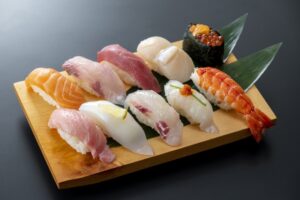- Japanese subtitles -
1つ目は、「主語の省略」です。
はじめまして。
わたしはオウです。
わたしは、中国から来ました。
私はアニメが好きです。
どうぞよろしくお願いします。
ここで、オウさんは、何度も「わたし」と言っています。
この文の主語は「わたし」、オウさんである事はわかるので、「わたし」を繰り返す必要はありません。
はじめまして。
オウです。
中国から来ました。
アニメが好きです。
どうぞよろしくお願いします。
このように、日本語では、誰について、何について話しているかわかる時は、その主語を繰り返しません。
If you have any questions, ask them for free! ➡ Japanese Question Form

ネガティブをポジティブに言い換えよう
Rephrase negatives into positives.
ネガティブ(否定的 ひていてき) → ポジティブ(肯定的 こうていてき)
頑固(がんこ) → 意志が強い(いしがつよい)
計画性がない(けいかくせいがない) → 実行力がある(じっこうりょくがある)
気が弱い(きがよわい) → 優しい(やさしい)
いい加減(いいかげん) → おおらか
おせっかい → 面倒見が良い(めんどうみがよい)
泣き虫(なきむし) → 素直に感情が表現できる(すなおにかんじょうがひょうげんできる)
飽きっぽい(あきっぽい) → 気持ちの切り替えが早い(きもちのきりかえがはやい)
心配性(しんぱいしょう) → 想像力が豊か(そうぞうりょくがゆたか)
同じことを言っていても、その言い方によって相手が受ける印象はガラリと変わります。言葉をよく選びましょう。
Even if you are saying the same thing, the way you say it will give the other person a completely different impression. Choose your words carefully.

What are izakaya (Japanese style pubs) popular in Japan?
If you are in Japan on business for an extended period of time, you may have heard the word “izakaya”.

Popular Japanese YouTube for Foreigners
In the past decade, we have quickly entered the age of online video. YouTube has become an indispensable tool for

Popular Types of Sushi Items in Japan
If you visit Japan as a tourist, you must try “sushi. There are many “sushi” restaurants around the world, but

Essential Interview Tips for Success at Japanese Companies
There may be some foreigners who are looking for a job in Japan, but in fact, many of those foreign





